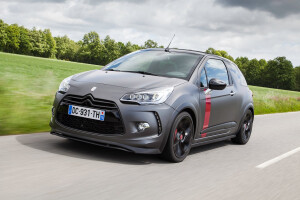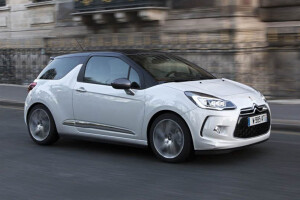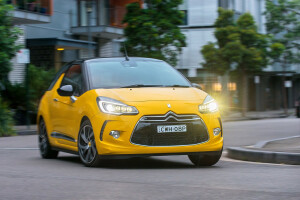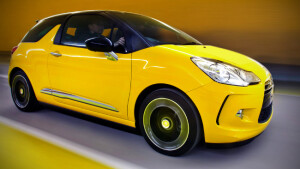Latest Review
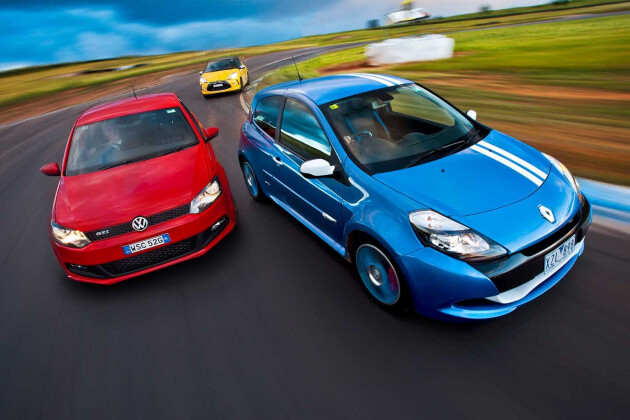
2011 Citroen DS3 vs Renault Clio RS200 Gordini vs Volkswagen Polo GTI comparison review: classic MOTOR
Super-minis: small on size, big on everything else
It only takes a handful of corners for any one of this trio to yank a similar initial reaction out of you: “wow”. Not in a take-your-breath-away-and-call-your-mates kind of way, but more of a silent, sharp intake of air.
This feature was originally published in MOTOR’s January 2011 issue
The Citroen DS3 results in creased corners of the mouth and a solemn nod. The new Polo GTI yanks out raised eyebrows and wide eyes. The Renaultsport Clio Gordini does a bit of both, and adds pursed lips and a little whistle. Call them the measures of the gaps between what you were expecting from them and what they actually deliver.
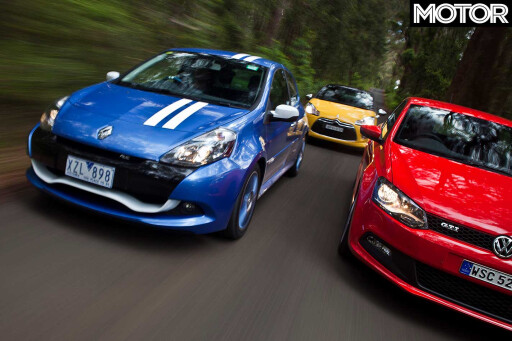 The current leading-edge crop of baby bombers is really pushing the perception of hot small cars. Sportiness? Sure. Then again, there's a certain sportiness in penny-pinching pint-sized hatches – think Ford Fiesta Zetec, Mazda 2 Genki, Mitsubishi Colt Ralliart – verging on half of this trio’s median price. But these super-minis bring more.
The current leading-edge crop of baby bombers is really pushing the perception of hot small cars. Sportiness? Sure. Then again, there's a certain sportiness in penny-pinching pint-sized hatches – think Ford Fiesta Zetec, Mazda 2 Genki, Mitsubishi Colt Ralliart – verging on half of this trio’s median price. But these super-minis bring more.
Bona-fide performance, then? Yes. Mind you, there are mid-range tiddlers out there – think Peugeot 207 GTI, Ford XR4, the old Polo GTI – that start to push reasonable, $30K-odd money. Or, at least they used to. They're now all defunct. Good, yes, but we're talking high-rent pace in pretty low-rent packages.
Splurge on this new crop of premium super-mini and you get all, or at least a fair chunk, of the build quality, comfort, refinement, materials, finish, spec, tech and pace you expect from larger luxo performance cars, yet squeezed into a sub-hot-hatch package. And for their mid-$30K to $40K ask, you’d want wow factor in the deal.
BMW's Mini set the mould, and Europe’s running hard with a ball that the Japanese (and, with its canning of the GTI badge, Peugeot) could’ve caught but so conspicuously dropped. This trio assembled here are super-mini sharp-enders, and it's quite clear after a couple of days and a thousand kays apiece that the yardstick for mega-tiddlers has been raised by its newest purveyors.
This little niche segment has expanded into its own diverse universe: Alfa MiTo Quadrifoglio Verde, Fiat 500 Abarth, the up-coming Audi A1, et al. And all three assembled here clearly cut their own paths.
The Clio drips old-school Renault racing heritage. The Polo taps into big brother Golf GTI’s all-round goodness to an obsessive, and even clinical, degree. And the DS3 pretty much throws convention out the window and carves its own flamboyant, style-driven trail.
Each is based on a lesser stablemate, but it’s the French pair that lay on the most visual fanfare. The Clio Renaultsport 200 Gordini Edition, to give its full name, apes its famed Gordini-fettled, rally-racing ’60s ancestors in a fussy and ostentatious manner.
Its white-stripes-over-sorta-French-blue is a real attention-grabber, even in the presence of the retina-roasting Citroen. Stare at the tri-tone nose for a while and it starts look a bit, erm, amphibious. Add white mirrors, the trick rear ‘diffuser’ with a pair of stainless exhaust tips, silver-frosted detailing (door handles, badges) and ornate BeBop 17-inch rims and you’ve got a lot of visual overload.
Inside the assault continues, with Had-Enough-Blue-And-White-Yet? Trim accents, art deco-style treatment to the gearknob, badges and carpets – key indicators that you’ve stumped up for a new spin on the Clio RS. Important that, because strip away the French retro-racer duds and it’s the same 200 Cup underneath. Not that it’s a bad thing.
Nor are restraint and cohesion the C3-based DS3’s strong suits, particularly in Black-On-Blazing-Lemon, probably the most garish of the six mixed and matched roof/body/dash/trim/rims colour combinations on offer in Oz. And there’s chrome. Lots of it.
Thankfully you’re not stuck with a fashionista combination. Want something less Liberace-like? Trust us, in drabber body colour choices (grey, white, black or white) it’s a lot less Sex In The City.
But regardless of colour choice, the DS3 is the antithesis of the Clio; new-school and ultra-modernism. The cabin’s funkier than James Brown, complete with sports watch instrumentation, ski boat seat styling and a dash panel made from a chunk of (optional) carbonfibre-like material that could be ripped off to fashion your own yacht. Beauty. Eye. Beholder. Someone loves all this stuff…
Then the Polo fronts up and, well, disappears in this company. Styling is neat, clean, cohesive, and as bland as oatmeal. The smart, updated corporate face is almost lost in its conservative look, particularly in the done-to-death GTI red and those plain-Jane 17-inch alloys that look low-rent compared with this French pair.
The Polo's restrained, mature cabin, however, feels the class act of the three. Most of the effect is down to the Golf GTI-derived tiller, lifting the richness inside, and there’s a crisp neatness and classiness (despite it lacking the Clio’s leather) lifting the game. Its French rivals, by contrast, feel a bit chintzy and juvenile.
The Polo is also the most comfortable and naturally ergonomic inside. The Clio’s dumpy upright seating and lack of wheel adjustment is fine for a short burst of action, a chore for long-haul touring. The DS3, though, has a much more natural, low-slung seating, if afflicted with that typically French quirk of having a very shallow footwell: a presumption that every owner is under five-foot tall.
And while all literally stretch the definition of ‘mini’ – the Clio’s feels as large as the old Megane – all three will struggle to shift four adults without a pitstop to the chiropractor for the rear passengers. And both three-doors require contortionist talent to access the rear pew.
When it comes to setting a fire under the driver’s seat, though, the Gordini's Clio 200 Cup underpinnings have long been the benchmark. There’s an admirable purity in that Renaultsport has stuck with the hard-revving naturally aspirated four-banger which, at 2.0-litres, outdoes its force-fed rivals by 0.6L (GTI) and 0.4L (DS3).
There’s a glorious, swelling roar as you swing the Clio’s needle to 7100rpm and summon all 148kW – the highest output of the trio – and cut-out doesn’t arrive until 7800rpm, at which point you’ve already heard the shift buzzer prompting the next cog in the six-speed manual ’box.
It’s a classic case of exhaust roar, broad rpm and super-close gear ratios that makes the Clio so satisfying to dig into. Its 215Nm torque peak doesn’t arrive until 5400rpm, yet its plenty tractable down low, and the energy just seems to swell as the revs rise and the exhaust snarl gets louder. Wonderful.
The Polo's twincharged – supercharger for low-rpm, turbocharger for high-rpm – 1.4-litre four is a smoother character, with a much quieter note, but there’s still a satisfying richness underfoot. Low-end urge is more robust than the Clio’s, with 250 supercharged Newtons manning the decks from just 2000rpm, and all 132kW are on call at 6200rpm. That VW can extract so much shove right throughout the rev range from such a small capacity is nothing short of miraculous.
The fact VW has matched the engine to a seven-speed DSG twin-clutcher is indication enough that just because the GTI is small, it’s not a car done by halves. This ’box is a sweet match for the 1.4, offering a ratio spread close enough to not catch the twin-blown engine out, but casual enough to tick along without fuss (at 2400rpm) at a 110km/h highway cruise. At the same road speed the Clio buzzes away a frantic 3300rpm like a giant, mobile blue and white beehive.
The DS3, equipped with a six-speed manual gearbox, easily matches the GTI for effortless highway cruising. It mills along quietly and stridently at 2400rpm at 110km/h, but ups the ante in on-command rolling response.
On paper, the 1.6-litre litre Mini Cooper-derived four is 10Nm down on the GTI’s torque, but all 240Nm are available from just 1400rpm and, from there, it’s a case of response, response, response. Squeeze the throttle anywhere, anytime, and the DS3 just wants to make keen, crisp forward progress. Interesting, because the manual’s ratios don’t feel as low-geared as the Clio, and surely they’re not as closely packed as the Polo’s seven forward cogs.
And right here is the conundrum. Both the VW and Citroen pile on the pace more effortlessly – and with less fanfare – than the Clio. On one hand, in our modern torque-hungry world, this is a favoured trait. But the Clio clings fast and hard to an old-school hot-hatch purity that demands grabbing a car’s scruff and wringing the bejesus out of it. That you must dig into the Gordini harder and longer during a spirited punt is not only fun, it’s pretty much the point of the hot hatch exercise, innit? And given the stonk on tap it rewards well.
So the head says that the GTI and DS3 should be applauded for the robust, effortless shove well suited to their sporty all-rounder pretensions. And the heart says the Gordini should garner equal applause for sticking to its focussed 'thrash me' go-kart character.
At best, for a majority of daily driving and cruising, the Clio is a chore. On the Hume from Sydney to Wakefield Raceway, in Goulburn, it’s near sadomasochistic. The sharp steering, with little sneeze factor off centre, you get used to, and you can just live with the beehive engine note without reaching for the Panadol. But it’s the ride that's the killer. It’s firm enough to make an Evo X feel casual, but unlike an Evo, which becomes more bump-compliant the faster you go, the Gordini goes from annoyingly jiggly to bucking bronco-like as speed rises.
In stark contrast, long-haul touring is much more five-star in either GTI or DS3, and the VW treads the nicest line between ride comfort and chassis control. Carrying speed, the DS3 feels a touch vague and a little floaty, and a smidge less tied down to the road.
Of course, the Clio is infinitely happier the moment its 215mm Continental ContiSportContact 3s step onto Wakefield’s hotmix. And you rightly expect a dominant performance from its hardcore Cup-fettled character in its natural hunting environment. Surprisingly, no.
The DS3 – the on-paper underdog – goes first, rattling off a 1:15.7 best. Then the Clio is let off its leash to set a benchmark: a 1:15.1 on its third flier. Drizzle arriving, track greasing up noticeably, the GTI pulls a quite remarkable 1:16.1, especially given deteriorating track conditions. (Sydney's November rain killed any straight-line performance testing at Sydney Dragway.) Not the result we expected.
The surprise circuit performer is the DS3. Its soft-edged everyday feel and respective 33kW and 17kW deficits to the Clio and GTI had suggested a lack of talent that evidently fronts up once the heat’s on.
Its broad and useable torque really pays dividends when it's exiting a corner. But there’s more. It can milk a lot more lateral grip from its meagre 205mm Bridgestone Potenzas than the GTI can from wider 215mm Dunlop SP Sport Maxxs (and neither are a tardy tyre). Lift-off hard enough into a tight bend and the nose grips and tail skips to a degree that you can almost drift it through sideways.
The sweetly matched – at least, on track – twincharged donk and DSG provide GTI’s seamless delivery, but it's finely polished dynamics where the Polo has really transformed. In some situations its feels more responsive and agile than even its Golf GTI big brother.
Sure, we expected the Clio to be quickest, but its 0.6sec advantage is hardly a dominant one. But, boy, it's a hoot. It demands the most driver application and delivers the most grin-inducing returns.
You can lean on it harder for longer. You grab its scruff, chuck it around, and it rewards with higher levels of dynamic agility and feedback. It turns in sharper, recovers grip more keenly, and has an innate balance that allows some ridiculous corner entry theatrics. You swap cogs more frequently – it’s a cog higher on its rivals in most corners – the engine note is more satisfying, and its exclusive and whopping four-pot front Brembos offer power and precision par excellence.
Most front-drivers demand a fair degree of understeer mitigation. The Clio, however, loves to pivot on its front end and let the tail do the dancing. It feels both quick and exciting. For feel-good vibes, few cars are this much fun for times when you want to kiss ripple strips.
There are a couple of cracking road loops that drop steeply and sharply through the valleys of NSW’s Southern Highlands. The round trip down and back demands tractable grunt, prodigious braking ability and chassis precision everywhere in order to maintain a spirited pace. It's here that chinks in the armour come to light with a lot of clarity. And all three are bloody quick on every curve and line.
Though the GTI lacks the Clio’s front-end point, it has brilliant steering: very linear, beautifully weighted, and communicative. The DS3 has slightly less point and purchase when pushed but it still steers with accuracy and, with its extra compliance and nice adjustability, tracks an assertive course wherever it's pointed. Anyone who’s written off electric power steering as dull and wooden should have a steer of any of these three. They’re all super impressive.
The taut Clio chassis is the edgiest of the three, skipping over mid-corner bumps, always lively and demanding more driver input. But the grip is such that you can lean on it that much harder and, with those brakes, dive deeper into an apex. The GTI and DS3, though, find the limits of their more moderate stopping power much quicker.
Bottom line is, they’re all seriously brisk, at least in context of their size, their tiddler origins, and their meagre price in The Grand Scheme. There’s a lot on offer for under $40k.
What goes against the Gordini is the downside of its singular focus: real-world ownership compromises. Especially given that, at $39,140, it asks Golf GTI money. Besides, does 'Gordini' mean anything to Joe Average Aussie who’s after an affordable, small-sized firecracker?
The DS3 bundies on at $35,990, including 17s and chrome fetishes.
And the GTI? The list of standard gear – bi-xenons, seven-speed DSG – is impressive for its meagre $28,900 ask. That's a whopping $7K and $10K cheaper than the DS3 and Clio respectively! And it’s really the first Polo offering a convincing, shrunken Golf GTI experience.
And, let's not forget, it’s as quick as its French rivals, too. Its all-round goodness gives it the top spot in this shootout, by the slimmest of margins, and if only under pragmatic and rational analyses.
Truth is, the trio is so diverse, with each nailing their aims with impressive conviction, that it’d be wrong to choose one over the other for ‘rational’ reasons. And if you're forking out your hard-earned for a super-mini, best choose whichever one feels best and appeals the most. They’re all good. Great, even.
And you'll add a raised eyebrow, solemn nod or quiet whistle whichever way you decide to go.
Fast Facts
| Citroën DS3 | Renault Clio RS200 Gordini | Volkswagen Polo GTI | |
| Body | 3-door, 4-seat hatchback | 5-door, 4-seat hatchback | |
| Drive | front-wheel | ||
| Engine | 1598cc inline-4, DOHC, 16v, turbo | 1998cc inline-4, DOHC, 16v | 1390cc inline-4, DOHC, 16v, turbo & supercharger |
| Bore x Stroke | 77.0 x 85.8mm | 82.7 x 93.0mm | 76.5 x 75.6mm |
| Compression | 10.5:1 | 11.5:1 | 10.1:1 |
| Power | 112kW @ 5800rpm | 148kW @ 7100rpm | 132kW @ 6200rpm |
| Torque | 240Nm @ 1400rpm | 215Nm @ 5400rpm | 250Nm @ 2000-4500rpm |
| Weight | 1156kg | 1204kg | 1189kg |
| Power/Weight | 97kW/tonne | 123kW/tonne | 111kW/tonne |
| Transmission | 6-speed manual | 7-speed dual-clutch | |
| Suspension (f) | struts, A-arms, anti-roll bar | ||
| Suspension (r) | torsion beam, coil-springs, anti-roll bar | ||
| L/W/h | 3948/1715/1483mm | 4017/1763/1484mm | 4064/1682/1500mm |
| Wheelbase | 2464mm | 2585mm | 2456mm |
| Tracks | 1468mm (f); 1471mm (r) | 1520mm (f/r) | 1443mm (f); 1434mm (r) |
| Steering | electrically assisted rack-and-pinion | ||
| Brakes (f) | 283mm ventilated discs, two-piston calipers | 312mm ventilated discs, four-piston calipers | 288mm ventilated discs, two-piston calipers |
| Brakes (r) | 249mm discs, one-piston calipers | 300mm discs, single-piston calipers | 232mm ventilated discs, single-piston calipers |
| Wheels | 17 x 7.0-inch (f/r) | 17 x 7.5-inch (f/r) | 17 x 7.0-inch (f/r) |
| Tyres | Bridgestone Potenza RE050A; 205/45 R17 88V (f/r) | Continental Sport Contact 3; 215/45 R17 87W (f/r) | Dunlop SP Sport Maxx; 215/40 R17 87V (f/r) |
| Price | $35,900 | $39,140 | $28,990 |
| Pros | Overt flair, original styling, strong engine, potent handling | Still the sharpest tool in the super-mini toolbox, fun factor | Polo GTI finally feels like "Honey I Shrunk the Golf GTI", value |
| Cons | Not the most mucho jigger, patchy fit 'n' finish in places | Lacks comfort of DS3, its basically a pricey sticker pack | Bland styling and rims, lacks a bit of sharpness and grip |
| Rating | 8 out of 10 stars | 7.5 out of 10 stars | 8.5 out of 10 stars |
Track Data
Whodini?
ITALIAN-BORN Amedee Gordini was a skilled mechanic before trying his hand at Grand Prix and Le Mans racing in France in the 1920s. In the '50s, Gordini sports car brand went on to meagre success in Formula One, both solo and in a tie-up with Simca.
The engine tuning legend was in his 60s when he sold his company to Renault (1962), which applied his expertise, and namesake, to a series of red-hot Dauphine, 8 and 12 racers.The R8 Gordinis, in particular, are legendary, virtually dominating rallying in the mid-'60s, and gave birth to a one-make race series for 1300 versions, thus creating Gordini 'Cup'. Gordini-branded Renaults also competed in 24 Hours of Le Mans.
The iconic blue'n'white R8s (above) of the mid-'60s boasted a close-cog five-speed and engine tunes of up to – wait for it – 77kW!
News
-
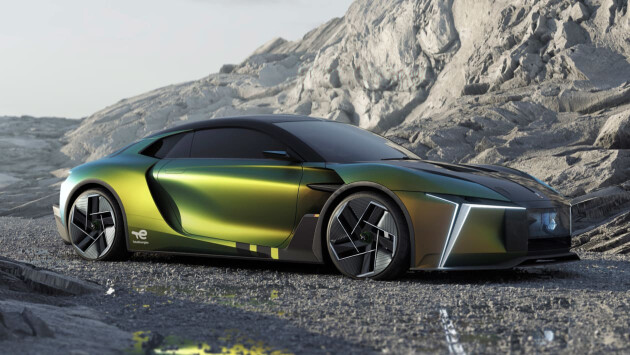 News
NewsDS E-Tense concept previews future technology for road cars
Lessons learnt from Formula E have carried across to DS's road car concepts
-
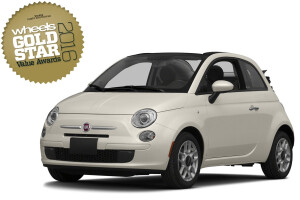 Best Value Cars
Best Value CarsConvertibles under $60K: Australia’s Best Value Cars
Drop the top, and drop the costs. Introducing the Fiat 500C Pop, Fiat Abarth 595C, and Citroen DS3 DSport.
-
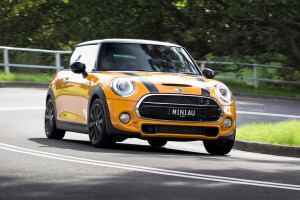 Features
FeaturesWheels Top Five: Performance cars under $40k
What’s the best way for a car enthusiast to spend $40,000 ?
-
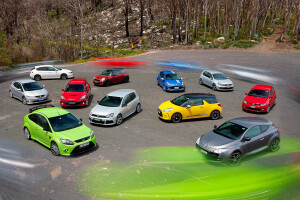 Classic Wheels
Classic WheelsHot hatch class of 2011 comparison review
Forced induction front-drive fours (and a five) plus two without turbos and two with all-wheel drive make up our field of so-hot-right-now hatches.
-
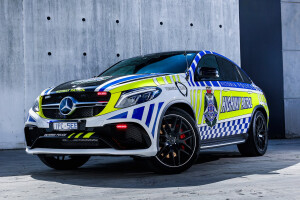
A Mercedes-AMG GLE63 SUV is Australia’s fastest police car
-
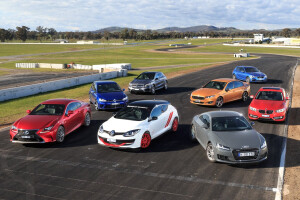
Bang For Your Bucks 2015: $50-100K
-
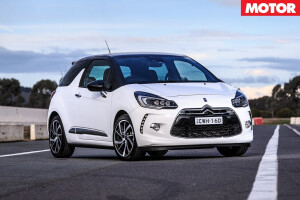
$0-50K: Citroen DS3 #13
-

Best convertibles under $50K


.jpg)
